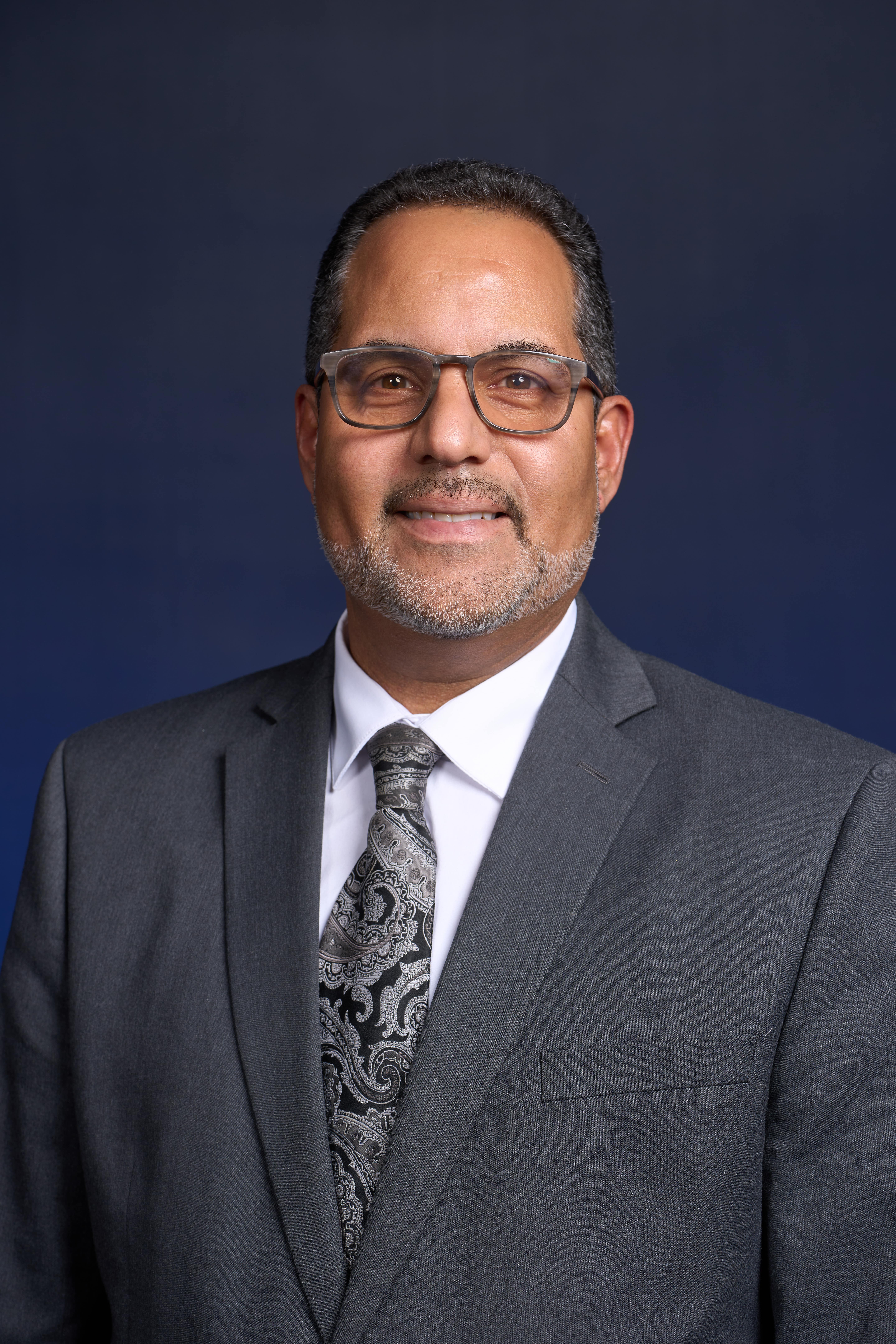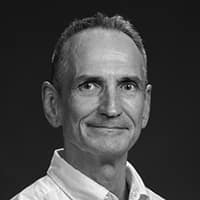New Worldwide Campus Dean of Students Knows How Much Mentors Matter

When Henry Ponciano looks back at the journey that brought him to the Dean of Students role at Embry-Riddle Aeronautical University’s Worldwide Campus, it’s the guidance he got along the way that stands out.
“I would not be here without my mentors,” said Ponciano, who joined the Embry-Riddle leadership team in January. “They were all role models, confidants, sounding boards and didn’t mince words when they needed to. These are all qualities one would want in a mentor.”
His positive experiences as a mentee and mentor have already drawn his attention to the ongoing COMPASS mentorship program at the Worldwide Campus, offered through the College of Arts and Sciences.
“I was so pleased to learn about the program because I know the power of having a mentor firsthand, and there’s enough empirical data to support the importance of having one, especially as a student,” Ponciano said.
COMPASS Mentors Provide Direction
COMPASS Director J.R. Hanamean says the unique program provides guidance and support that goes beyond a student’s Worldwide educational journey to help them stay focused and reach their goals.
Open to all Embry-Riddle students, COMPASS offers four headings that help participants Navigate Forward.
In the Cohort Mentorship, up to seven students work with a faculty mentor for four months, focusing on set topics designed to support newer students and overcome barriers to success. The PAL—Peer and Alumni Leader—Mentorship pairs a trained student mentor or alumnus with a cohort of up to five students for a single four-month cycle. However, connections can continue long after the cycle ends.
The Research Mentorship allows research-savvy faculty mentors to guide cohorts of two to four students through research projects from conception to publication — or at any point in the research process. The duration varies, but it is generally one academic year. Finally, the Individual Mentorship allows students to work one-on-one with a faculty mentor for a full academic year.
“After meeting the program leaders and attending a COMPASS round table meeting, my goal is to ensure our office works to increase the level of awareness and participation in COMPASS,” said Ponciano, whose experience with mentors began as an undergraduate and has continued throughout his professional career.
A Career Built on Helping Others Thrive
Ponciano earned a bachelor’s degree from the University of Rhode Island and said his higher education career actually got its start when he became a counselor with a URI program called Talent Development, which was designed to support first-generation students the summer before they started college.
“My experience with the Talent Development program showed me that I could make a difference in the lives of students, particularly those like me, who were first-generation college students,” Ponciano said.
That realization ultimately led him to a part-time role as a career advisor at Palm Beach State College and later to career and academic advising positions at several institutions that included Florida International University, Broward College, Nova Southeastern University and most recently, Tallahassee Community College, where he was Dean of Student Success and Retention.
“While I enjoyed working in the various advising positions, one of my mentors told me that I had grown as much as I could in the field of advising and in order to advance in my career, I needed to pursue more education,” Ponciano said. “This is when I returned to the University of Rhode Island and completed my master’s degree in Human Development and Family Studies.”
A Trio of Mentors Who Made All the Difference
When he was an undergrad, Ponciano met Terry Addison, the Dean of Students at URI and one of three key mentors who would help carve out his career path.
“At the time, he was the only African American administrator, so as a first-generation Latino student, I gravitated to him,” Ponciano said. “He was kind, personable and always made himself available. There were many days when I would just hang around his office. At the time, I didn’t know this, but he would be instrumental in shaping my approach to working with students. He took a genuine interest in them, respected their perspective, and valued their opinion.”
Ponciano would also connect with David Asencio, who currently as Dean of Student Development at Coconino Community College, and it was Asencio who would advise him to pursue an advanced degree even after Ponciano had 10 years in the workforce.
“He encouraged me to return to school because he understood I could not grow as a professional in higher education without completing a graduate degree,” Ponciano said.
The third mentor to impact Ponciano’s life was Scott MacLachlan, who served as Dean of Students at Palm Beach State College.
“I credit him for instilling in me the importance of valuing your staff,” Ponciano said. “He worked very hard to get to know his staff and always supported them. He was honest, fair and a straight shooter. As a result, he was well-respected and trusted across the institution.”
The relationship with MacLachlan also taught Ponciano another critical lesson about mentors and mentees.
“At face value, we have nothing in common,” he said. “He’s a white man from the south, and I’m a Latino from the inner city. So, while there’s value in having a mentor, you may have a lot in common with, I also feel we have enriched each other’s lives because of our differences.”
Enriching the lives of Worldwide students has now become Ponciano’s chief mission in his new role, a position that he said he may not have pursued prior to the pandemic.
“Having to figure out how to move all student services online during the pandemic and subsequently teaching undergraduates and graduates online, I gained an understanding and appreciation for working with students in this environment,” he said. “This job is a perfect opportunity to grow as a professional and be at the forefront of the modality more students are opting for. Not to mention, Embry-Riddle is an amazing institution with a global reach, so what we do at the Worldwide Campus has an impact on a significant number of students.”
Ponciano says his key goals going forward include building partnerships across the university to support student success, increasing awareness of services and programs, creating pathways for staff members to advance and grow the department, and increasing the use of data to inform policies, practices, and programs.
Ponciano says he is forever grateful for the expertise and strength his mentors have provided, especially the advice from their own hard-won experience.
“As an administrator, it is very easy to work around the clock for one reason or another,” Ponciano said. “But one of my mentors told me never to put work before family. He missed out on time with his first two children because of the many hours he worked, including weekends. He regretted doing so and made sure I didn’t make the same mistake.”What Should You Look for in Your Mentor?
To those looking for a mentor to help them with their academic, professional and personal journeys, Ponciano offers this advice:
“Find someone who you trust, respect and who listens more than they talk. A good mentor doesn’t tell you what to do. Instead, they offer perspectives for you to consider.”
Ponciano adds: “Being a great mentee is a great foundation for being a great mentor. Pay it forward and be open to mentoring others. There can never be enough good mentors ready to be a resource to someone.”
At Embry-Riddle, COMPASS mentors offer to provide the new perspectives that Ponciano advocates, and several mentees are also now giving back as COMPASS PAL mentors.
“As I said, I know the power of having a mentor, and that opportunity is what COMPASS offers,” Ponciano said.
Join COMPASS and let us help you Navigate Forward!

 Jon O'Neill
Jon O'Neill